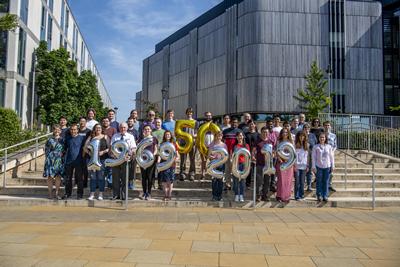Southampton marks 50 years of excellence in electrochemistry research and education

Scientists from the University of Southampton have celebrated the 50th anniversary of a summer school teaching modern electrochemical techniques to academics and industry professionals across the globe.
Southampton has been undertaking teaching and research in electrochemistry since the early 1960s and hosted its inaugural summer school in 1969.
Instrumental Methods in Electrochemistry is run by Southampton’s Electrochemistry Research Group and teaches the application of techniques to problems in chemistry, biology, sensors, materials science and industrial processing.
The popular one-week residential course, which comprises a combination of lectures and laboratory work, has been attended by over 1,000 delegates in the past half century.
Dr Guy Denuault, Summer School Organiser, said: “Electrochemistry touches many areas of science and is attracting significant interest because of the need to develop advanced technologies for energy storage and conversion. I have been coordinating the course for over 20 years and am proud that we have maintained such a high standard that we no longer need to advertise the course. Many research collaborations have evolved from discussions during the course and the school’s teaching will continue to shape excellence in our field over the coming decades.”
Southampton’s electrochemistry research section grew massively in the 1960s under the leadership of Sir Graham Hills. Several inventions and discoveries have been made by the group, including the discovery of surface enhanced Raman spectroscopy (SERS).
Today, the University of Southampton is among very few institutions worldwide to be bestowed with a Chair of Electrochemistry, which is currently held by Professor Philip Bartlett. Students can take an advanced, postgraduate education in Electrochemistry and Battery Technologies, spanning the subject’s fundamental principles through to applications in energy storage and conversion.
The electrochemistry summer school is targeted at higher education learners with a masters in science or above and industry professionals seeking continuous personal development.
The course welcomes around 40 attendees each year, with participants invited to select five hands-on practical sessions from a choice of 12 experiments designed to illustrate the core material and techniques. It has been held yearly since 1969 and also been delivered in North America, Argentina, Brazil, China and India.
This summer’s event was held from June 23 to 28, with a limited intake of 30 included to allow for works on a £12m renovation of Southampton’s Chemistry facilities.